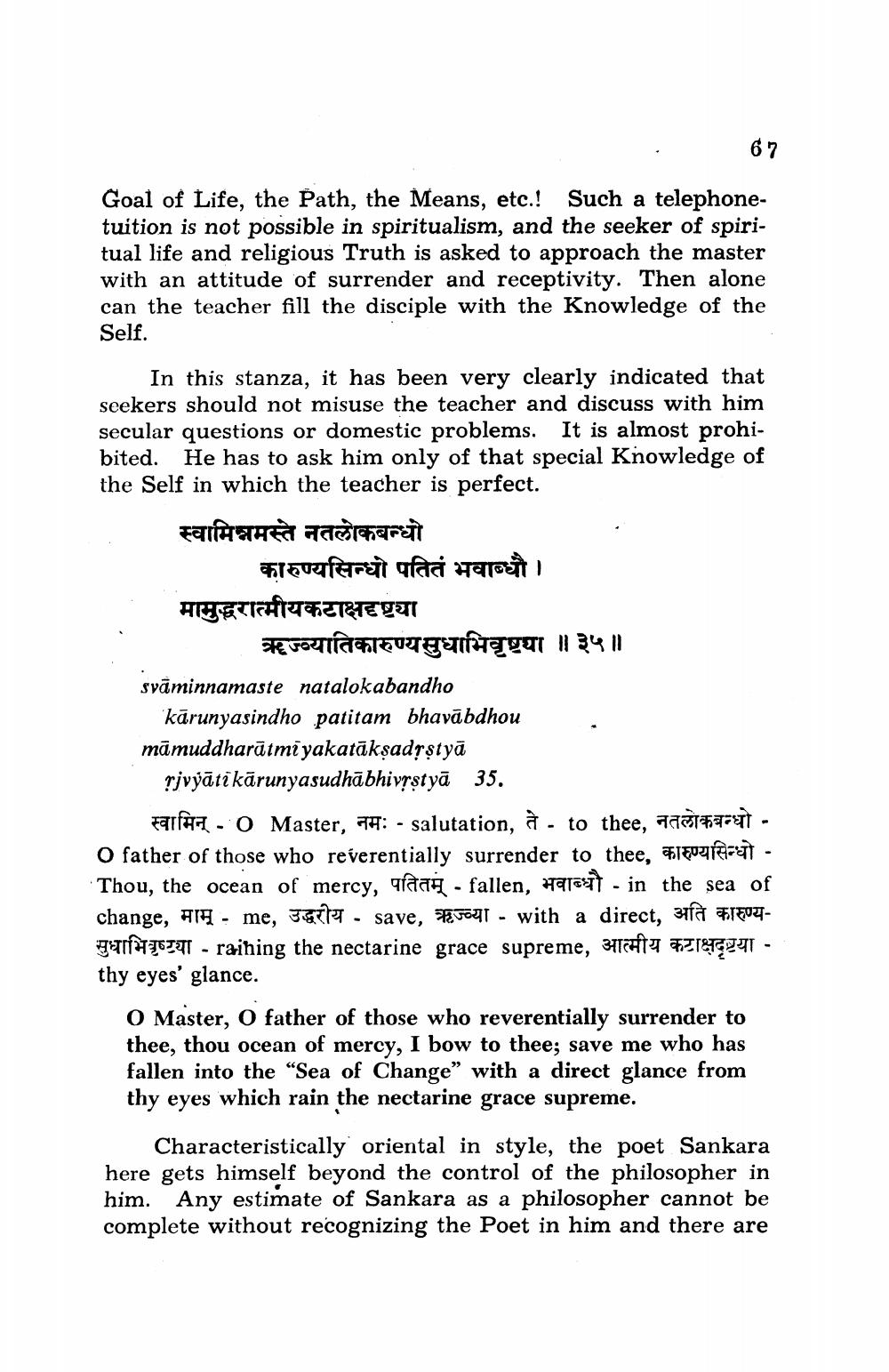________________
67
Goal of Life, the Path, the Means, etc.! Such a telephonetuition is not possible in spiritualism, and the seeker of spiritual life and religious Truth is asked to approach the master with an attitude of surrender and receptivity. Then alone can the teacher fill the disciple with the Knowledge of the Self.
In this stanza, it has been very clearly indicated that seekers should not misuse the teacher and discuss with him secular questions or domestic problems. It is almost prohibited. He has to ask him only of that special Knowledge of the Self in which the teacher is perfect. स्वामिन्नमस्ते नतलोकबन्धो
कारुण्यसिन्धो पतितं भवाब्धौ। मामुद्धरात्मीयकटाक्षदृष्टया
ऋज्व्यातिकारुण्यसुधाभिवृष्टया ॥३५॥ svāminnamaste natalokabandho
kārunyasindho patitam bhavābdhou māmuddharātmīyakatākṣadrstyä
?jvýāti kārunyasudhābhivrstyā 35.
स्वामिन् - 0 Master, नमः - salutation, ते - to thee, नतलोकबन्धो - O father of those who reverentially surrender to thee, कारुण्यसिन्धो - Thou, the ocean of mercy, haag - fallen, Harasit - in the sea of change, माम् - me, उद्धरीय - save, ऋज्व्या - with a direct, अति कारुण्यAUTOZAT - raining the nectarine grace supreme, 3HCHU FIIETEZAT - thy eyes' glance.
O Master, O father of those who reverentially surrender to thee, thou ocean of mercy, I bow to thee; save me who has fallen into the "Sea of Change” with a direct glance from thy eyes which rain the nectarine grace supreme.
Characteristically oriental in style, the poet Sankara here gets himself beyond the control of the philosopher in him. Any estimate of Sankara as a philosopher cannot be complete without recognizing the Poet in him and there are




